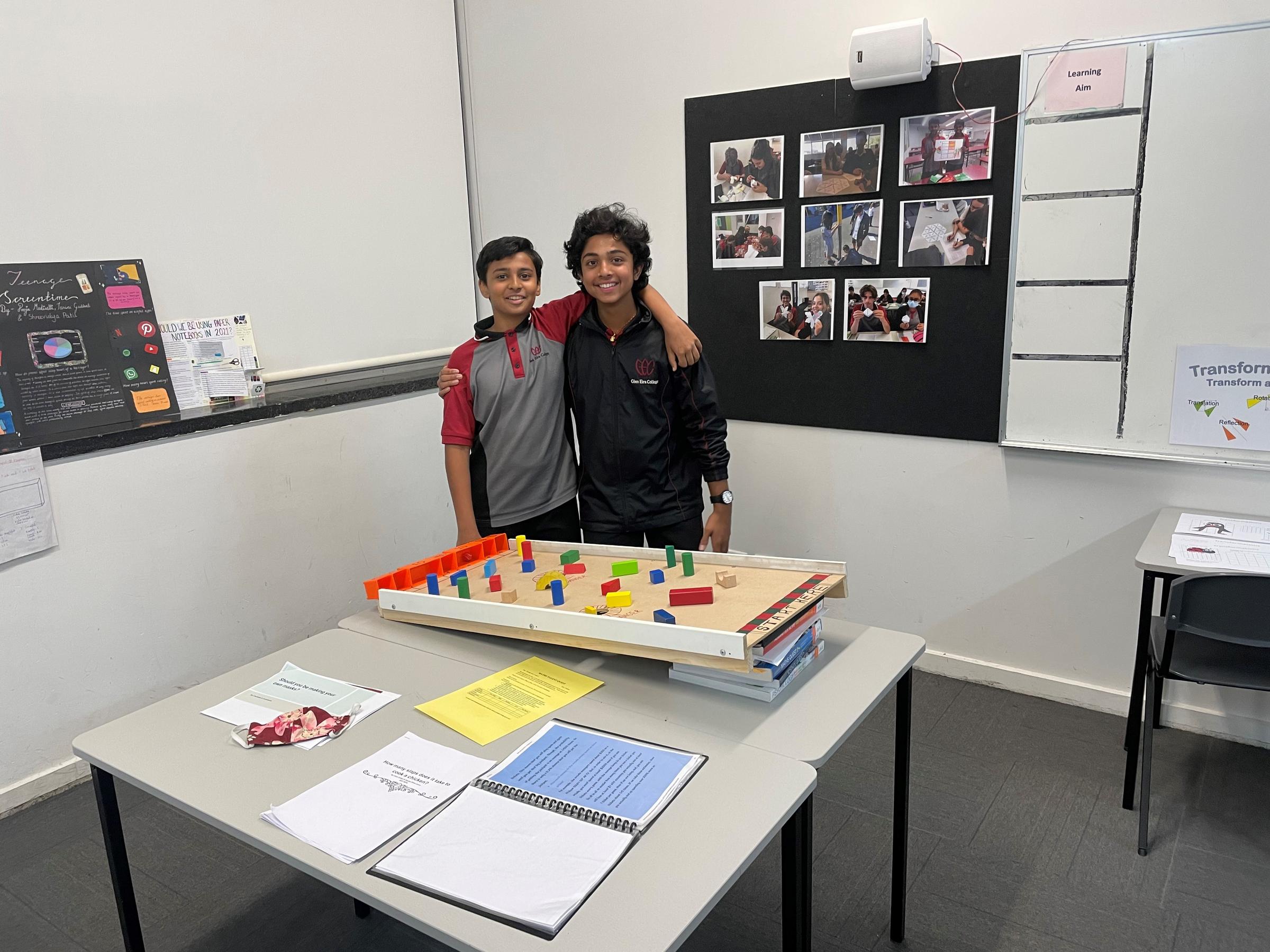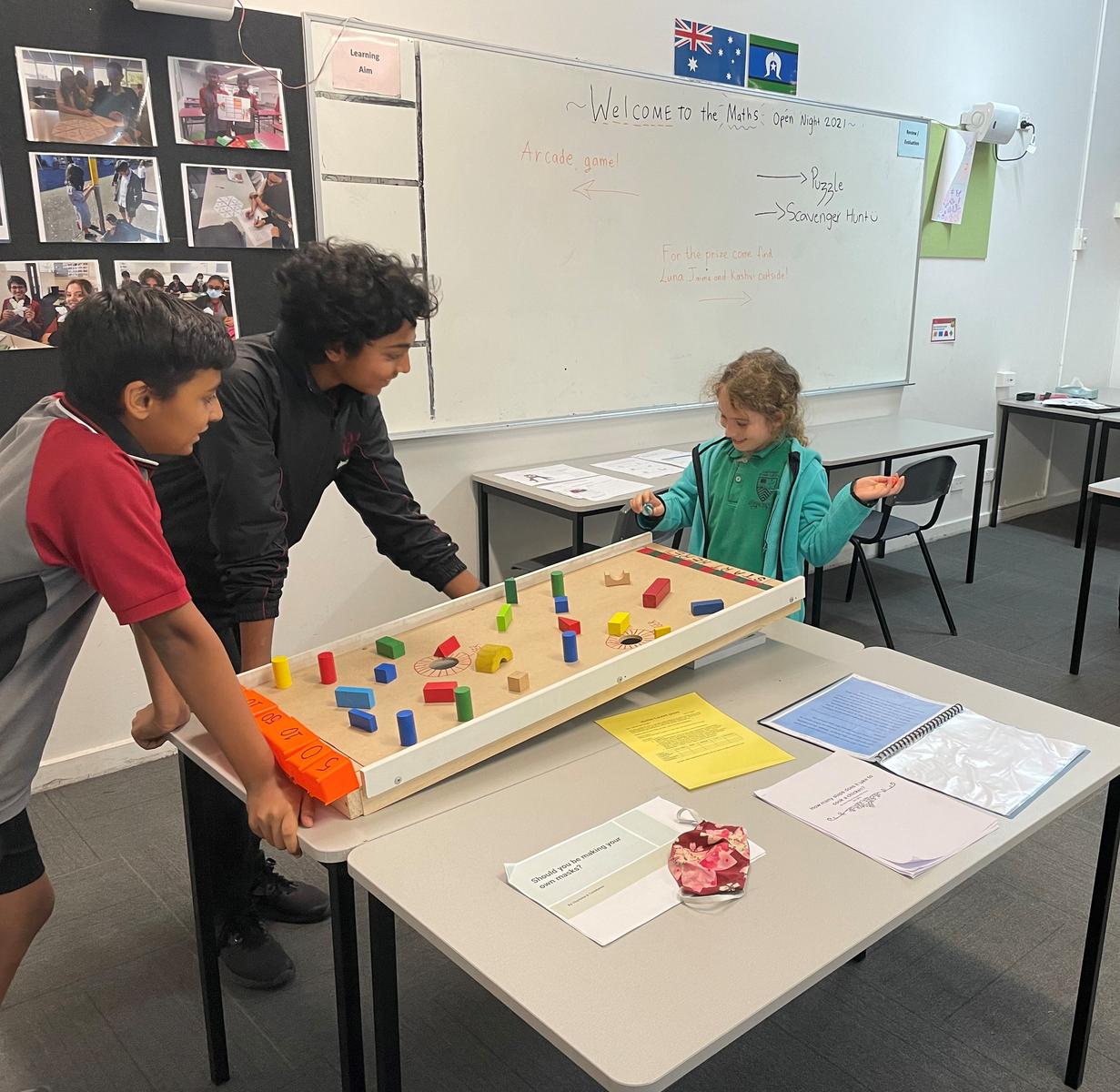Mathematics @ GEC

Exciting things happen in Maths classes and here is one activity that fascinated me last week.
Akshya (Aksh) Ajbani, Jyothiryaditya (Adi) Reddycharla and Max Robbs from 8B investigated whether it is better to spend money in arcade games in order to win prizes or whether it is better to just buy those prizes. They also constructed their own arcade game and demonstrated how it could be manipulated to make it easier or harder for the customer to win.
Aksh and Adi eagerly participated in the open night to demonstrate their project to prospective students and parents. They confidently spoke about the Maths involved in the game by using the right Mathematical language and information. They highlighted that after going through some calculations they figured out the chance of hitting the jackpot was 0.2%, which was also same as one in 500. This demonstrates their skill in applying Maths in real life.
Here are a top 5 tips for parents to help their children with their Maths, as mentioned by Peter Saffin, who is the chief executive of the Mathematical Association of Victoria and a former teacher:
The following was extracted from the article https://www.theage.com.au/national/victoria/helping-your-kids-learn-maths-at-home-doesn-t-have-to-be-daunting-20200515-p54tbn.html
Tip 1:Learning maths is about strategies. Much of the actual maths is the same as what you may have learnt. Learning maths is more about reasoning, and, using many strategies to solve problems and develop thinking. The strategies you learnt at school are still valid too. With Archie, I have just learnt jump counting with number lines and split strategy for addition. I can’t remember doing these strategies at school, maybe I didn’t, but there are plenty of videos to get me comfortable now.
Tip 2: Ask questions. You don’t have to know the answers. Just ask questions and let your child think it through; What thinking did you use to get this far? What else could you try? What could a next step be? How could you find out more about what to do? Do you think others may do something different?
Tip 3: Be persistent and learn together. Maths can be challenging. Rather than saying ‘I can’t do that’, or ‘It’s too hard’, say ‘I can’t do that yet,’ or ‘We will work it out together’. Research shows parental support is a major factor for student success. Celebrate achieving small steps in solving a problem.
Tip 4: See maths every day. There is plenty of maths around you to develop numeracy skills like counting, calculating, measuring, interpreting data and stats, recognising patterns and shape. Ask questions about the maths in activities like cooking, exercise, sport, budgeting and shopping. Playing games is a non-threatening way to experience maths for parents and kids.
Tip 5: Stay positive and don’t pass on your baggage. This is not about you. Let your children experience maths positively, we need maths for everyday life, and maths graduates have excellent career opportunities. Don’t say "I was never good at maths" or "I never liked maths".
Stay the course. Our kids will be back at school in no time, and you will still need to support them at home. Perhaps your own maths anxiety will be reduced if you stay involved.
Arivu Kumaran
Head of Maths

